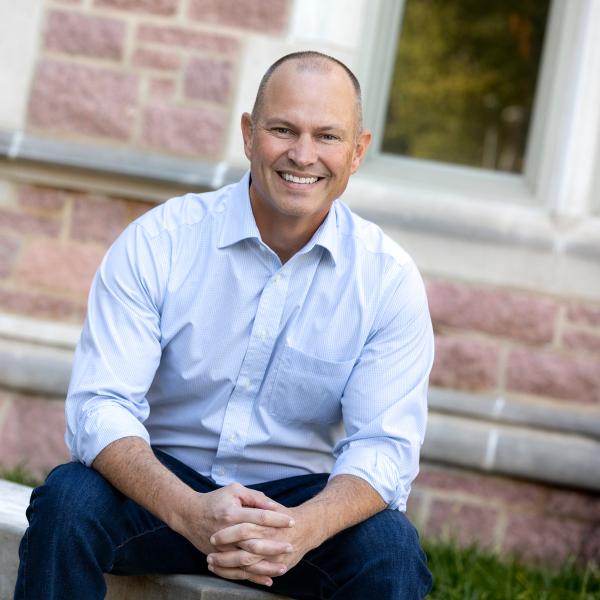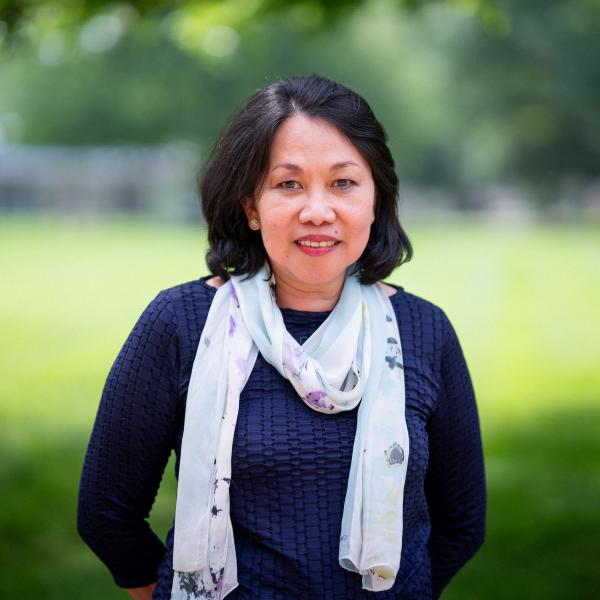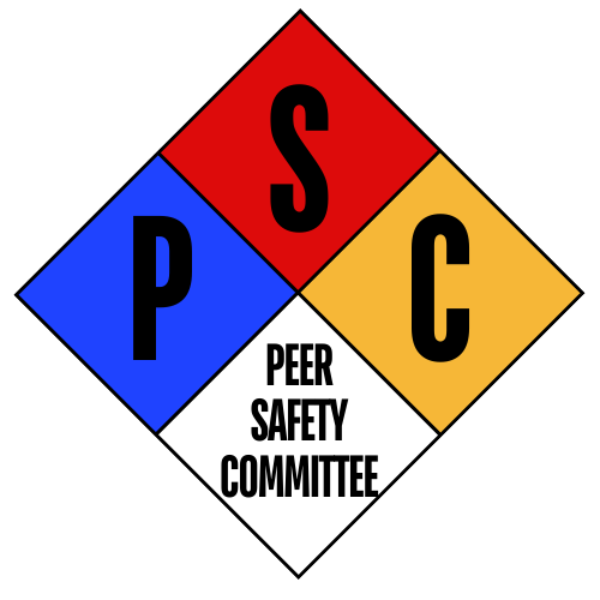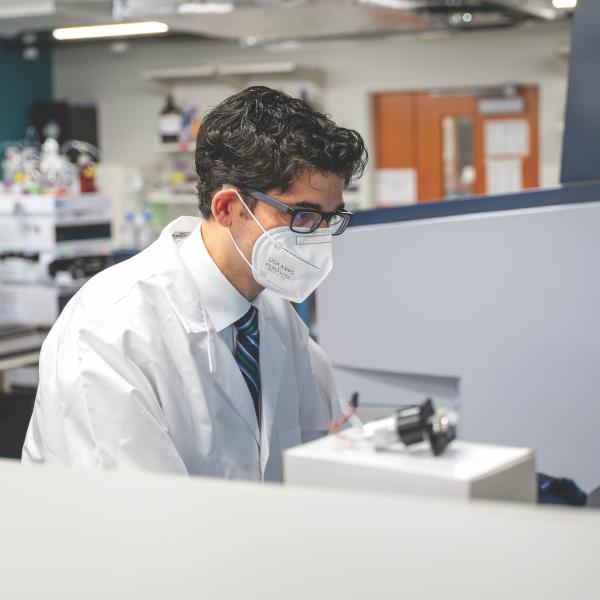Erin Gemmell has been selected as a 2019 Association of Women Faculty Graduate Student Award winner.
Citing her work with Catalysts for Change, the Association of Women Faculty (AWF) honored graduate student Erin Gemmell last week. Each year, AWF, which seeks to advance the professional and social interests of women faculty and support diversity across WashU, recognizes graduate students from around campus who exemplify their values. This year, three of their five honorees were women in STEM.
Erin Gemmell, a graduate student in Tim Wencewicz’s lab in the Department of Chemistry, was nominated for her work with Catalysts for Change. Catalysts for Change hosts a two-day STEM workshop for high-school girls from across St. Louis. This spring, 72 ninth-grade girls attended, participating in activities including an egg launch, forensics lab, squid dissection, and even a session on making liquid nitrogen ice cream.
Said Gemmell, “Catalysts for Change increases young women’s ability to see themselves in STEM by fostering opportunities for them to actually do science.”
Gemmell attributes the success of Catalysts for Change to the support of its volunteers and community partners. She and Vicki Banas, a fellow graduate student, work with faculty mentors Megan Daschbach, Jia Luo, and Gaby Szteinberg from the Department of Chemistry to coordinate the event. They are supported by over 40 volunteers, including undergraduates, graduate students, postdocs, and other female faculty and staff. Many undergraduate volunteers come from the Women in Science (WIS) course, taught by Professors Jia Luo (Chemistry) and Barbara Baumgartner (Women, Gender, and Sexuality Studies).
These campus partners “have been amazing with their help through the years,” said Gemmell, “and provide ongoing support to Catalysts for Change.” Key off-campus partners include local high school science teachers, such as Sherry Wibben of University City High School, who Gemmell describes as instrumental in getting students to the event.
Gemmell hopes her recognition by AWF will increase visibility of Catalysts for Change and other groups like it and spur more outreach activities.
“At the AWF event, I connected with another award winner who is doing similar work in biology. We want to work together in the near future to broaden our outreach horizons and increase our groups’ exposure across campus.” Gemmell wants to see other departments follow chemistry’s lead in promoting outreach, especially for young women and other underrepresented groups in STEM.




